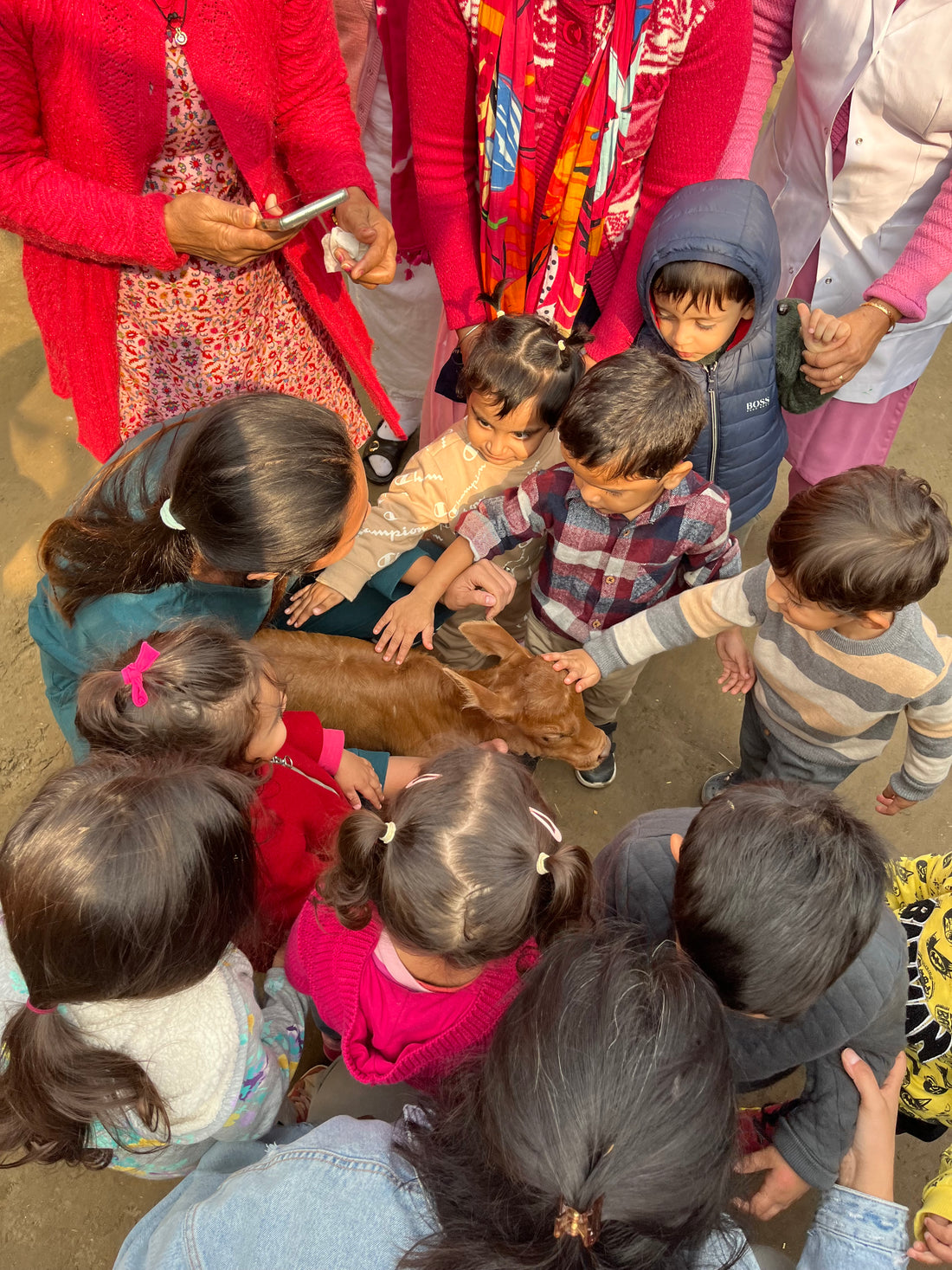Beejom has a special learning programme for groups of school kids of various age groups and adults who want to visit the farm as part of experiential learning. There is nothing more joyful than working with children for a better future for this planet.
We are basically a working agricultural farm, learning centre and animal sanctuary. We are delighted to have Children and grown-ups over as the visits have proven to be a great learning experience for them. Farm
life offers children and adults alike a natural opportunity to learn and see many textbook concepts first-hand.
At the farm visit, we do the following activities with people depending on the time available; across all age groups and at multiple levels of learning. A group of up to 30 children/ adults at a time is best for effective interaction.
● The Animal Ramp Walk:))
● A farm walk
● Shramdaan on the fields
● animal interactions
● dung pot and log making
● seed ball making
● learning to use the chakki, silbatta and okhli:).
● Village Games.
● We serve nimboo paani
● And biscuits as refreshments
● The visits are usually timed from 9.00 am to 12.00 pm. This can be changed to suit your timings. Longer slots are available too.
We also do specific scientific experiments with school children of various age groups to showcase how science can come alive in an experiential way in the nature around us. Some of the experiments and projects we can do on the farm with them are:
● Starting a Kitchen Garden.
● Understanding the basics of agriculture from preparing the soil to storing the harvested grains. The whole process.
● Distillation methods with herbs.
● Alternate energy from nature and how to harness it.
● Biofuels on the farm.
● Making Bio Enzymes using Waste.
● The science of probiotics and making microbe cultures for plants and their use as
● Earthworms and how they make soil.
● Making cloth from scratch
● Effects of chemicals on vegetables. How contamination takes place and its effects
● What is microclimate and how do you harness nature to increase crop yield?
● What is the difference between natural farming and organic farming?
● understanding intercropping, multi-cropping, companion planting and crop rotation; the pillars of natural farming
● life under the soil and the importance of growing it.
● Composting- its importance and methods
● PH and its relevance in agriculture. Finding the Ph for the soil and water on the farm.
● Geography and agriculture. The importance of moon cycles, seasons and climate in food systems.
● understanding the relevance of the insect world in farming and food systems.
● A short history of Food through the Ages
● Machines on the farm. How they work.
● About Water. It’s conservation. How it can be used sustainably in a human environment.
● What is GMO? Understanding Seeds and seed sovereignty.
● Weeds- they are plants whose virtues have not been discovered.
● Herbs (nature’s pharmacy) – a walk through our medicinal garden
● Animal husbandry- how farm animals are integral to the concept of sustainability.
● Managing waste on a natural farm. Where making wealth out of waste is a way of life.
● Making newspaper covers and Bin liners with newspaper.
● Solar Cooking.
And many others. We need advance notice and bookings with us to do these talks and experiments.
The charges are 200₹ per head for school children and 300₹ per head for college students.
We have a large airy shed (chabootara) made with ecological materials by our farmers themselves that serves as a classroom and AV room.
We have basic but clean toilet facilities and a basic first aid kit.
We have an RO plant for water.
The animals are all vaccinated.
However, we urge you to brief the children to be respectful and kind to the animals and not handle them unless supervised.
● Internships
● Community farm

